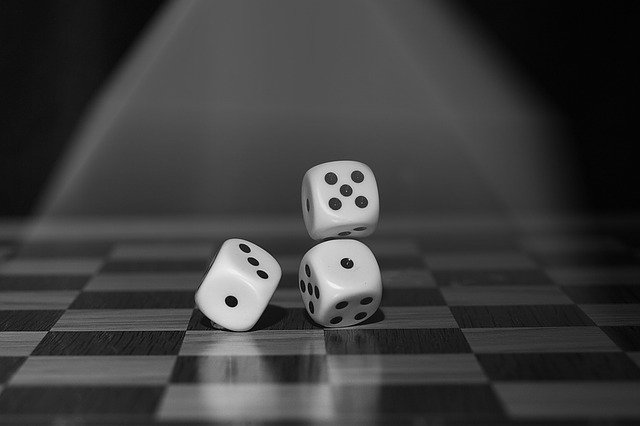The science behind winning our favourite games
As we spend more time at home (student houses or otherwise) with the Covid-19 pandemic, one way to pass the time is to play some games. If your game taste is more traditional, there are some scientific methods to help maximise your chances of winning – read on and learn how to succeed (although don’t be too cocky about it – you’re still living together, after all)!
A study by Chinese researchers found that, if a player wins, they are psychologically more likely to stick with the same move
Even before you start, you may want to decide player order with a game of rock-paper-scissors. It may seem that there’s no strategy to just throwing one of three random hand shapes, but you can actually psychologically game this to your advantage. Make sure you’re playing best of three, and then go random on the first game. If you lose, you should play the shape that would’ve beaten your opponent last time (so, if you lost to rock on turn one, play paper on turn two, etc) – a study by Chinese researchers found that, if a player wins, they are psychologically more likely to stick with the same move. This is known as the ‘win-stay, lose-shift’ strategy.
A ‘heat-map’ of visited squares suggests that both the brown and dark blue properties are visited infrequently, and so neither is worth owning
Let’s move onto the games themselves. One (potential) is a game of Monopoly. Obviously, chance does come into the equation, but there are some mathematically sound ways to increase your odds of winning. When you go around the board the first time, you should attempt to buy all the properties you can (but leave the utilities, as they’re essentially useless). Past that, it makes sense to own the properties with the highest average traffic – Jail is top but, past that, you’ve the spot that is seven away from Jail, as seven is the most likely roll from two dice (followed by six and eight equally).
By this logic, it’s best to own the orange and the red properties as, although the rent may be lower, they’ll be visited more, thus nullifying that fact. A ‘heat-map’ of visited squares suggests that both the brown and dark blue properties are visited infrequently, and so neither is worth owning.
Two more Monopoly tips for you. Firstly, it’s good to add houses and hotels, but exactly when should you do it? Use the dice logic, and wait until your opponents are roughly seven spaces away – you’re not spending money until the last possible moment, and you’re far likelier to get it back. Although you’ll make more money with a hotel, though, the maths suggests that having just three houses yields the biggest return. And, as a final tip, know the value of being in Jail – statistically, the longer the game goes on, the smarter is it to wait in Jail for as long as possible, as there will be fewer non-penalising squares.
How about a game of Battleship? In order to maximise your chance of winning, you need to do two things – maximise your odds of scoring a hit each turn, and minimise your odds of being hit. On a ten-by-ten board, the probability of scoring a hit in the centre four squares is 20%, and that drops to 8% in the board’s corners. This is all to the number of ways you can lay down a ship on each square – in the corner, it is only possible to place a ship two ways (horizontally or vertically, both extending from the corner). But the centre, larger ships can be laid down in numerous ways – the carrier can cover those four squares in 10 different ways, increasing the likelihood of a hit.
Experimental data suggests that a coin has a 51% chance of landing on the same face it was launched
Let’s end with the simplest game of them all – heads or tails? In a perfect world, the head-tails ratio is 50-50, but experimental data suggests that a coin has a 51% chance of landing on the same face it was launched. So, if you want to win a coin toss, try to be the tosser and, if you can’t be, don’t let the tosser choose. Then, choose the side that is face down – the coin will likely land with the same side up, but most people invert the flipped coin onto their other hand.
There’s no way to guarantee a win, of course, but having the science at your back will make wins far likelier. Put some of these tips into action while you’re stuck at home, and you may be surprised with how victorious you are.

Comments